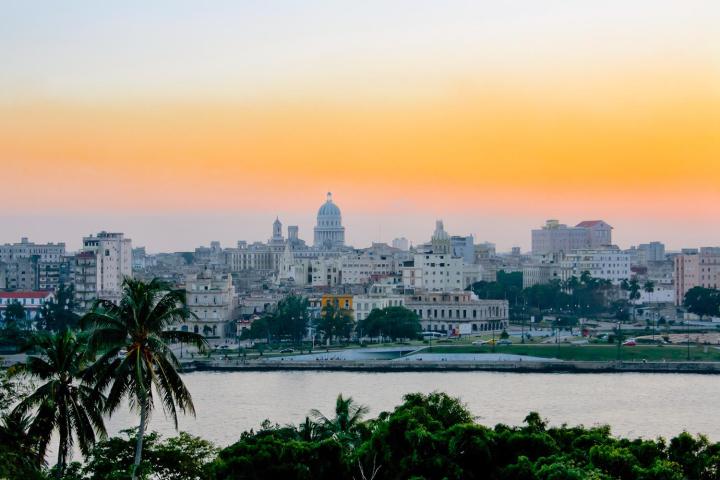
The listings number in the hundreds right now, but Airbnb has been sending representatives to Cuba during the past few months to encourage more real estate owners to lease their properties. Most are concentrated in Havana, Cienfuegos, Santa Clara, and other trendy destinations to cash in on Cuba’s tourism industry, which accounted for 10 percent of the country’s gross domestic product (GDP) in 2013. More than 2 million foreign travelers visit Cuba each year, and Airbnb expects that number to grow – the company saw a 70-percent spike in searches from U.S. users for listings in Cuba.
Airbnb thinks Cuba’s a natural fit for its service. The company’s essentially trying to digitize Cuba’s large network of “casas particulares,” or private homestays. The casas, which arose after the Cuban government began allowing citizens to rent out property to tourists in 1997, have long been the island’s most popular accommodations.

Those pre-existing lodgings give Airbnb a leg up on U.S.-based hotel giants, which remain fettered by U.S. policy. Type in “Cuba” in most travel sites, and it’ll yield zero results (we reached out to Booking.com on whether it will start listing lodgings for Cuba, but the company declined to comment). Executives from Choice Hotels International, Marriott International, Hilton Worldwide Holdings, and InterContinental Hotel Group have publicly expressed interest in the Cuban hospitality market following the Obama administration’s moves toward normalizing trade with Cuba, but are at the mercy of a less receptive branch of government; Congress retains the sole power to remove trade embargos. Given the staunch opposition expressed by representative Marco Rubio of Florida and others, a formal lifting of restrictions seems unlikely in the near term.
Other barriers to hotel entry are unclear real estate laws and a banking system in its infancy. But Airbnb faces its own array of challenges, foremost the lack of reliable Internet infrastructure. The International Telecommunications Union ranked Cuba the “least connected” country in the Americas – 125 out of the 166 countries worldwide – in telecommunications development. Only five percent of Cubans can access the Internet from home – most wait for hours in line at government-run Internet cafes that cost a pricey $5 per hour.
And then there’s the matter of getting there. Americans may no longer need prior permission of the U.S. Office of Foreign Assets Control, but visits to Cuba must fall under one of 12 approved categories. Finding transport won’t be easy or cheap, either – although U.S. airlines are no longer technically prohibited from establishing scheduled routes to Cuba, the U.S. Department of Transportation has to negotiate a civil aviation agreement, or rules for air travel between the two countries, with the Cuban government before flights can commence. Until then, vacationers from the U.S. are stuck with expensive charter companies.

Given the many hoops Americans currently have to jump through, Douglas Quinby, vice president of research at travel analytics company Phocuswright, thinks Airbnb’s move is “more of a symbolic step” in the short term. The real winners, he says, are foreign travel companies free of the logistical and legal dampers facing U.S.-based corporations. “Canada and Europe’s big tour operators should pay the most attention to the launch of Airbnb,” he says. (Airbnb isn’t authorized to serve non-U.S. travelers just yet, but the company says it plans to pursue the necessary licenses “in the future.”)
It may indeed be a while before U.S. booking companies establish any meaningful foothold in Cuba. But Airbnb is smartly laying the groundwork for the explosion in business to come…eventually.
Les Shu contributed to this article.


